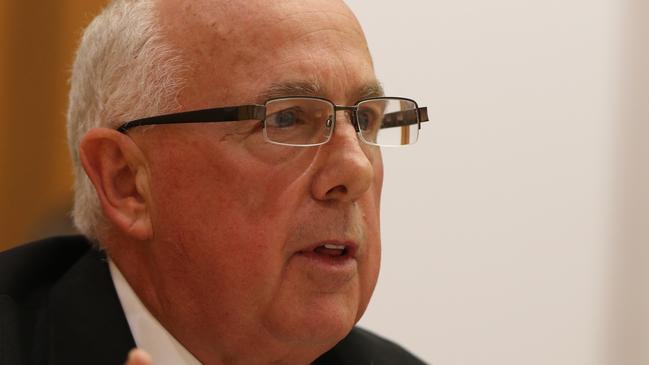Fair Work to speed up enterprise agreements approvals
New targets to speed up approval of enterprise agreements follows the defeat of the Coalition’s bargaining changes.

The Fair Work Commission has unveiled new targets to speed up approval of enterprise agreements, following the defeat of the Coalition’s proposed bargaining laws and criticism by employers that the tribunal takes too long deliberating on workplace deals.
Under changes announced by tribunal president Iain Ross on Monday, the commission will seek to approve 50 per cent of compliant agreements in 10 working days rather than three weeks, and 95 per cent in 20 working days, not 100 per cent in eight weeks as occurs now.
For complex applications, the commission will seek to approve 50 per cent in 20 working days rather than 10 weeks, and 95 per cent in 45 working day rather than 100 per cent within 16 weeks.
The move follows the government failing to get Senate support for proposals requiring the commission “as far as practicable” to determine applications within 21 working days and for tribunal members to provide a written explanation in cases when the deadline was not met.
In February, Justice Ross said the proposed 21-day limit on the commission determining agreement applications was “unnecessary” and likely to have consequences contrary to the interests of employers and workers.
Australian Mines and Metals Association chief executive Steve Knott said Monday’s announcement was a “welcome change of heart” from the president, but he remained concerned there were two categories of approval applications.
“This effectively gives FWC members an avenue to treat union agreements differently to those reached without unions or challenged by unions, irrespective of whether they were parties to bargaining,” he said. “The current culture within the FWC appears to be one of finding highly technical reasons to reject agreements reached without and/or challenged by unions instead of giving primacy to the wishes of the parties to be covered by it.”
ACTU secretary Sally McManus on Monday lambasted employers for proposing a minimum wage freeze after The Australian reported the commission was examining whether to again stagger minimum wage rises for 2.2 million workers across the next financial year.
Citing the winding up of the JobKeeper scheme and doubts over the vaccination rollout, employers in hard-hit sectors are urging the commission to either impose a 12-month minimum wage freeze or delay pay increases in industries adversely impacted by the COVID-19 economic shock by up to seven months.
Unions are pushing the commission to abandon the staggered approach to pay rises taken at the height of the pandemic and award a 3.5 per cent pay rise to all minimum-wage and award-reliant workers from July 1.
Accusing employer groups of promoting a “false economy” argument, Ms McManus said imposing a minimum wage freeze would deter spending by workers, leading to less revenue for small businesses. “I think this is a really terrible short-sighted view by those industry groups,” she said.








To join the conversation, please log in. Don't have an account? Register
Join the conversation, you are commenting as Logout